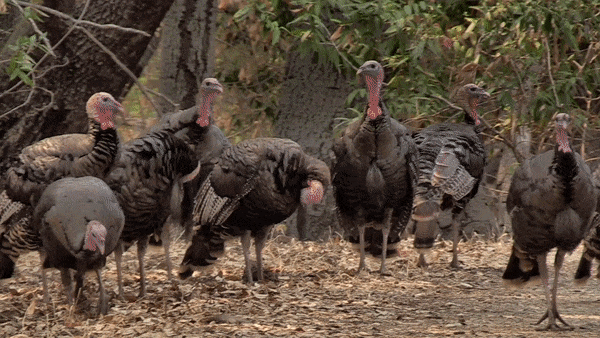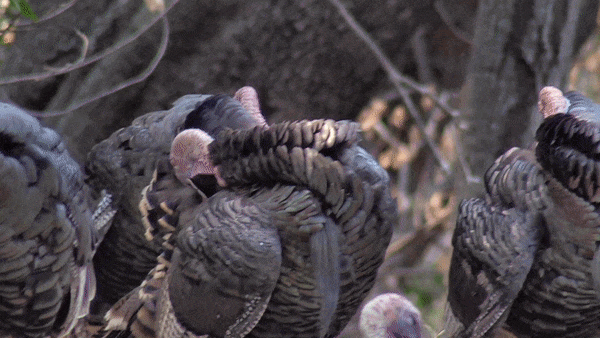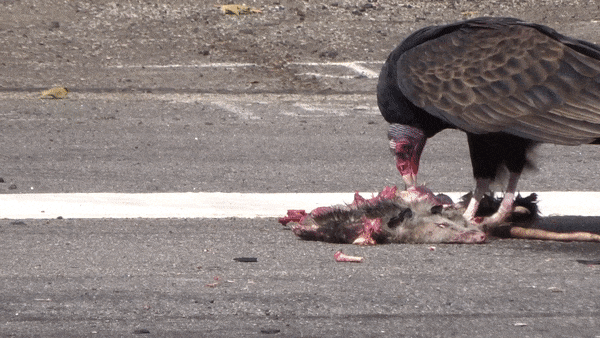Hello folks who wonder if pet dogs are constantly playing Pokémon GO with their pee locations,
Whether in real life or the life we live on the internet, we constantly want to be surrounded by people who think like us or have similar interests. Surrounded by either like-minded people or YouTube videos recommended by algorithms that know more about your interests than your closest friends, gives you a sense of belonging, security and boosts your self-esteem.
Recently while hiking on a trail, I was ambushed by this group of Wild Turkeys who blocked access to the trail. Even though I could have sold this batch to Costco and made a chunk of change for myself, I let it go and turned back.
Turkeys like to hang out in groups and you will rarely see one alone unless it is on a plate during Thanksgiving dinner or incubating its eggs. Being part of a group has its benefits; increased awareness of predators and better foraging opportunities. Case in point is this dum-dum snoozing during work hours. To its defense I sometimes indulge in the same behavior during meetings at work.
Wild Turkey's diet consists of foods ranging from fruits, invertebrates, grass, acorns and everything in between. They can be typically spotted scratching the ground with one foot at a time to uncover anything that is hidden among the leaf litter.
Turkey Vultures on the other hand are scavengers and have humans to thank for giving them such an innovative name because these vultures resemble Wild Turkeys with their pink bald heads and .... that's pretty much it. That is like calling Hot Dog a sandwich because it simply has bread on the outside.
Turkey Vultures unlike the wild turkeys will be seen foraging independently during the day.
That's strange, why would they need to sleep on tall trees and still be in the company of others? Surely, no predator is going to make the effort of climbing all the way to the top of the tree to attack one for a quick midnight snack. Is it then, all about being "extra" safe like the host asking you to wear a mask when you are being led from the door to your table at a restaurant only to immediately remove it once you reach your table or wearing a mask when riding a car all alone?
Biologists who study birds speculate the cause is not protection from predators. Instead, roosting provides a chance for other vultures to share information about where the good areas to find food are located, so losers know who to stalk and where to look for food the following day. Here is one trying to cut in line but immediately gets disciplined to wait its turn.
Even though there is a pecking order among the Turkey Vultures who have to wait in line to consume the decaying animal, one can cut the line by drop-kicking the vulture currently feeding on the carcass and displacing it. I mean it's crazy that they are fighting over eating rotting food but then humans are always fighting over which sports team is the best, so we are not doing any better.









No comments:
Post a Comment
Did you learn something new in this post? Let us know in the comments below